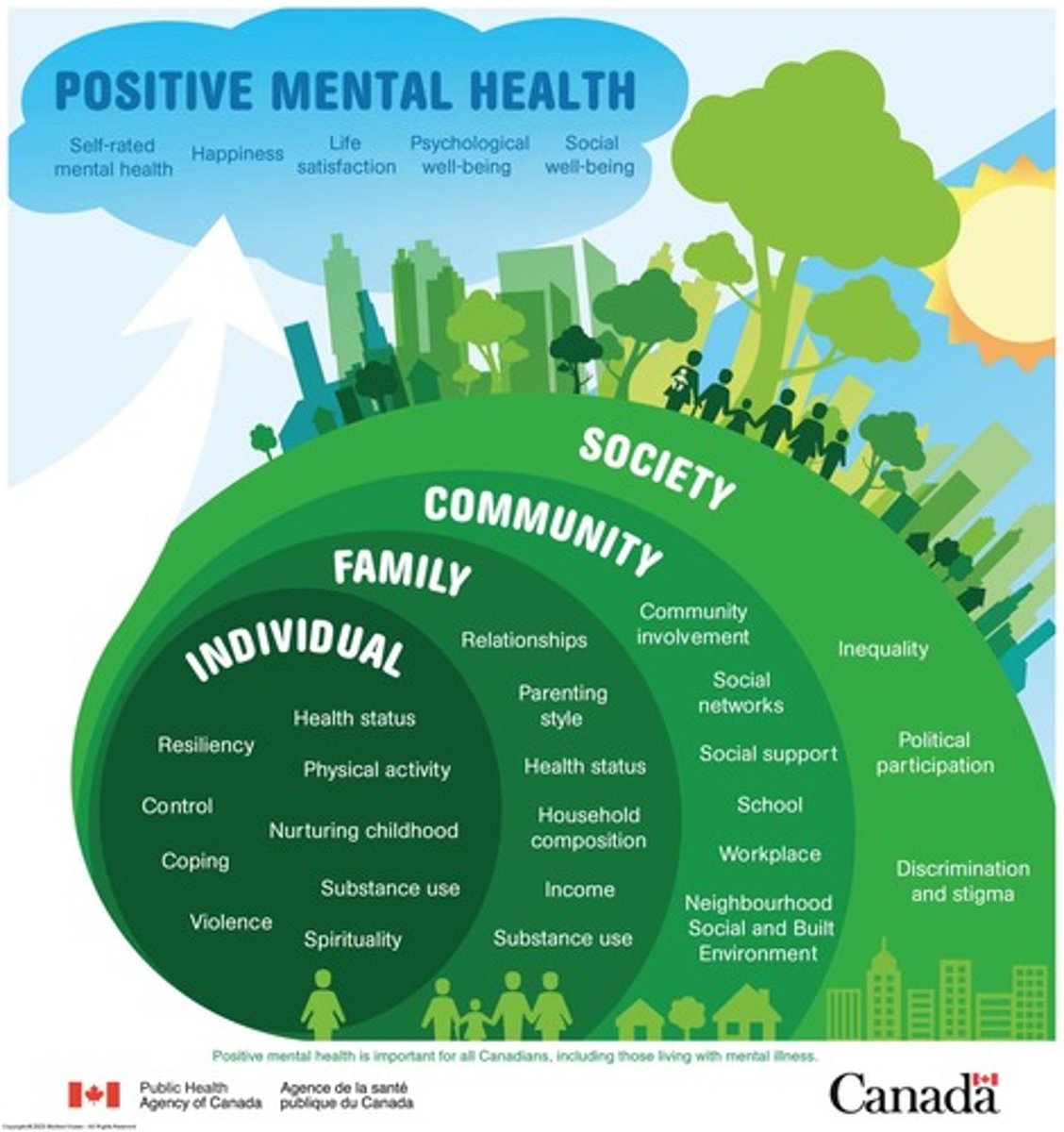Mental Health, Disorders, and Recovery: Canadian Nursing Perspectives
1/18
There's no tags or description
Looks like no tags are added yet.
Name | Mastery | Learn | Test | Matching | Spaced |
|---|
No study sessions yet.
19 Terms
What is the definition of mental health?
A state of well-being in which an individual realizes their self-potential, copes with life stresses, and can work productively.
How is mental health related to physical health?
Mental health and physical health are integrated and influence each other.
What is the Positive Mental Health Surveillance Framework?
A framework used to monitor and promote mental health and well-being.
What are the key components of the International Council of Nurses Policy Statement on Mental Health?
Address stigma, advocate for policies, contribute to research, recognize nursing relationships, educate on person-centered services, support community actions, and participate in climate change planning.
Define wellbeing.
The state of being healthy, happy, or prosperous, with harmony and balance at its foundation.
What is the Canadian Index of Wellbeing?
A measure of the quality of life in Canada.
What characterizes mental disorders?
Health conditions marked by alterations in mood, behavior, and cognition, associated with distress and impaired functioning.
What is the prevalence of mental health problems in Canada?
One in five Canadians will experience a mental health problem or illness.
What are the two most accepted psychiatric classifications for diagnosing mental disorders?
The WHO's International Statistical Classification of Diseases (ICD-11) and the DSM-5.
What does the DSM-5 include?
An introduction, diagnostic criteria and codes, and emerging measures and models.
How are mental disorders organized in the DSM-5?
Along developmental and life span lines, influenced by cultural, social, and familial norms.
What are the gender differences considered in the DSM-5?
Variations resulting from biological sex and self-representation that influence mental illness.
What is mental health literacy?
Knowledge about mental health, recognizing problems, and being comfortable discussing mental health issues.
What is the role of recovery in mental health care?
An active process unique to each individual, focusing on living alongside one's illness and emphasizing strengths and resources.
What are the key directions for promoting mental health in Canada?
Promoting mental health across the lifespan, fostering recovery, providing appropriate services, and collaborating with Indigenous peoples.

What role does the Mental Health Commission of Canada play?
Promotes positive change through knowledge exchange and sponsors major initiatives related to mental health.
What is the purpose of research-based care in mental health?
To generate evidence for best care interventions and improve understanding of mental health experiences.
What is the significance of the term 'diagnosis as labeling'?
It allows for both positive and negative consequences, emphasizing the need to avoid negative labeling.
What is the focus of recovery practices for mental health?
To support individuals in learning how to live alongside their illness and achieve a satisfying life.